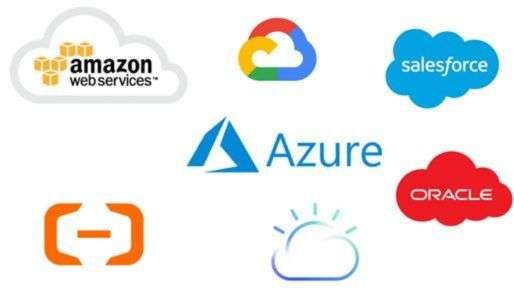Unlocking the Cloud: An Introductory Guide to Cloud Computing
Introduction Cloud computing has simplified the way companies and individuals consume, create, and store complex data. Sort of like leasing out your computing resources rather than buying them, and it has true wonder. In this article, we discuss the basics of cloud computing, and big companies in this space such as Google Cloud, and Microsoft Azure, and provide a list of benefits that cloud computing can bring to users.
What is Cloud Computing?
Cloud computing is the delivery of different services through the Internet. These services usually contain data storage, servers, databases, and networking among others. Like gaming, instead of running this resource on the local computer or at an on-premises data center. They are flexible, scalable, and available in the cloud… often cheaper.
Basic Concepts of Cloud Computing
On-Demand Self-Service: You can access computing resources as needed without human intervention.
Broad Network Access: Services are available over a network—i.e., the Internet—and can be accessed from anywhere.
Resource Pooling: Multiple users share the same resources in a way that they can dynamically allocate to the needs of each user.
Rapid Elasticity: Easily scale resources up or down based on current demands.
Measured Service: You pay only for what you use, and the resource can be metered, which benefits both the user and the service provider.
Leaders in Cloud Computing
Several tech giants lead the cloud computing industry, providing various services tailored to different needs. Let’s explore some key players:
Google Cloud Platform
Google Cloud also called Google Cloud Platform (GCP) offers a suite of cloud services including computing, storage, and machine learning tools. Google’s cloud is respected for its high performance, robust security measures, and powerful data analytics capabilities. Google Cloud is one of the major leaders in cloud computing.

Microsoft Cloud
Since Microsoft Azure has a robust integration with all the other Microsoft products like Windows Server and Office, Microsoft Azure training would be very handy for you! It provides a wide range of services from simple storage to very complex machine learning and IoT services. Azure has a large library of developer tools and resources making it as the choice for enterprises to scale their services.
Other Cloud Computing Leaders

Amazon Web Services (AWS): Often recognized as the pioneer in the cloud computing space, offering a vast array of services from infrastructure to artificial intelligence. The interface for AWS is called the AWS management console.
IBM Cloud: Known for its robust enterprise solutions and strong emphasis on hybrid cloud capabilities.
Oracle Cloud: Specializes in integrated cloud applications and platform services, particularly strong in database management.
Alibaba Cloud: A major player in the Asian market, Alibaba Cloud offers versatile cloud solutions.
Benefits of Cloud Computing
Cloud computing offers a plethora of benefits that are changing the tech landscape:
Cost Savings
Cloud services can lower costs for businesses. The need for any expensive recruitment or the conundrums that come with its maintenance With you, one will have to pay for exactly what has been used which results in better budgeting.
Flexibility and Scalability
There is no greater level of flexibility in the cloud. Whether you are a startup scaling quickly or an established business looking to handle seasonal spikes, cloud services can scale up and down with minimal downtime.
Enhanced Performance
Cloud providers run with physically massive data centers, and powerful hardware and infrastructure. This results in quicker processing speed and with minimal latency for your AWS workload applications.
Security
Cloud providers, such as Google, Microsoft, and Amazon, spend a lot of money to secure their platforms. This includes security features such as encryption, firewalls, and identity management, and they are updated with the latest security updates to ensure data protection.
Disaster Recovery and Backup
Efficient Disaster Recovery Planning with cloud computing In case of a system failure, not all is lost as data can be copied onto multiple servers. This in turn enables rapid recovery and ensures that your operations experience no downtime at all.
Business Continuity
Cloud services also provide append with continuous operation, which reduces the risk of hardware failure. If a data center goes down, another stand-in will cover services without downtime.
Collaboration and Productivity
Seamless collaboration using cloud applications Improves productivity: The team can access these documents from anywhere and work on them at any time. What is great for this generation is that teamwork has become far easier with the sophistication of real-time file sharing and communication tools.
Automatic Updates
No longer waste time and resources updating software/hardware, and the cloud service providers deal with much of it by releasing newer versions, features, and security patches in real-time.
Environmental Impact
Environmentally friendly (all virtual servers sitting in a data center) Data processing with cloud services ultimately helps to reduce the total energy consumption and environmental footprint by increasing server utilization rates and minimizing time spent in an idle state.
Choosing the Right Cloud Service Provider
Choosing a cloud service provider depends on your specific needs. Here are a few factors to consider:
Service Range: Some providers offer specialized services, so choose one that matches your requirements.
Pricing Model: Understand the pricing structures to find the most cost-effective option.
Security Features: Ensure the provider meets your security and compliance requirements.
Support and Reliability: Look at the provider’s customer support and reliability track record.
Conclusion
Cloud computing is very much a part of the technology strategy today. The cloud is cheaper, scalable, faster, and more secure than traditional computing styles. To address various business operations, heavyweights like Microsoft Azure and Google Cloud offer a multitude of services delivering an unprecedented capability to harness sophisticated technologies to drive growth and innovation.
We hope this article will give you a brief knowledge of cloud computing and leading companies offering cloud services like Google Cloud, Microsoft Azure, Amazon Cloud, and Oracle Cloud. Please subscribe to our YouTube channel. You should also check out our article on Elon Musk’s AI chatbot Grok-2.
